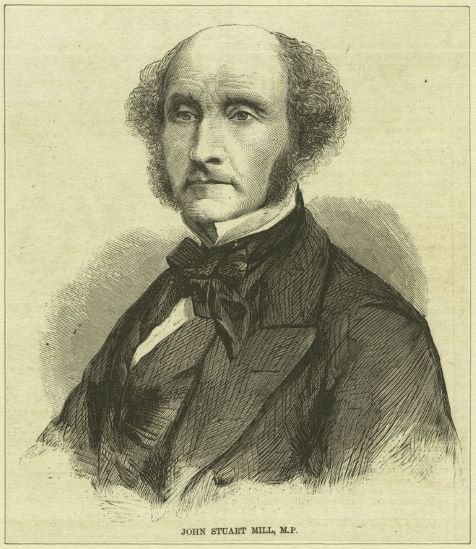Liberty Matters
Private Property: the Missing Link in John Stuart Mill’s Defense of Liberty

John Stuart Mill’s 1859 essay “On Liberty” is one of the most enduring and powerful defenses of individual freedom ever penned.[89] In the broadest sense, Mill defines the range of a person’s right to unrestrained liberty over his own choices as extending to that point at which his actions would infringe upon and violate the equal rights of other people to their freedom.
But one of the weakest point in Mill’s defense of individual liberty is his failure to clearly align his case for human freedom with the right to private property and its use in all ways that do not violate the comparable individual rights of others.
Mill’s Three Forms of Tyranny
Mill argued that there were, historically, three forms of tyranny that have endangered liberty through the ages. The oldest was the tyranny of the one or the few over the many. The one or the few determined how others might live and what they might say and do and, therefore, in what forms their human potential would be allowed to develop.
The newer form of tyranny, Mill said, was the rule of the many over the one. The revolt against the tyranny of the one or the few resulted in the growing idea that the people should rule themselves. Since the people, surely, could not tyrannize themselves, the unrestrained will of the people became the ideal of those who advocated unlimited democracy.
Mill also said that there was a third source of tyranny over the individual in society, and this was the tyranny of custom and tradition. Mill argued with great passion that societal customs and traditions could, indeed, very often be the worst tyranny of all. They were binding rules on conduct and belief that owed their force not to coercion but to their being the shared ideas of the right and proper held by the vast majority in the society.
Private property and the Free Market
What Mill does not give emphasis to or fully appreciate in his essay “On Liberty” is that what enables an individual to follow his own path even in the face of strong customs and traditions is the institution of private property and the free and voluntary relationships of the market economy.
Private property gives an individual ownership and control of a portion of the means of production through which he may then choose how and for what purposes he will live his life. In his home and on his property, in the free society, he can design his life to fit his values, ideals, and desires. What the customs of others consider eccentric can be lived as the norm and the normal on his own private property.
The advantage of the market economy is that an individual can choose how and in what form he will find his niche in the division of labor and the system of voluntary exchange to acquire those things that will enable him to fulfill his own vision of the good life and its purposes.
This will not come without a cost. To earn the income that permits him, as a consumer, to buy the things that will enable him to live, perhaps, an unconventional life may require him to work as a producer at tasks he finds irksome or unattractive.
On the other hand, he can choose to earn a living doing something he enjoys more, but then he may have to forgo the higher income that he could have earned if he had produced and supplied something that potential customers might have valued more highly.
Market Anonymity and Individual Liberty
The market economy also offers the individual a degree of anonymity that helps shield and guard him from prying eyes and the imposed values of others.
Rarely do the consumers of multitudes of market-supplied goods and services know or care about the values, beliefs, or lifestyles of those in the production processes who participate in bringing demanded commodities to the buying public.
A person can earn a living making a product to finance his personal vision of the good life, even when many of the buyers of his product would, perhaps, radically disapprove of the way he leads his life with the income he has earned serving their wants.
It is precisely this type of freedom that private property in the market economy makes possible to all its participants that arouses the disapproval and anger of those who resent the ability of some to flout the customs and traditions believed in and practiced by many if not most of the other members of society.
The danger to liberty arises when those who resent breaches of tradition cry for the use of government power to be used to impose obedience to custom. Only then does the tyranny of custom, as understood by Mill, become the coercion of the many over the few. Only then is freedom denied, indeed suffocated, by politically enforced conformity.
Endnotes
[89.] John Stuart Mill, “On Liberty” [1859] in The Collected Works of John Stuart Mill, Volume XVIII - Essays on Politics and Society Part I, ed. John M. Robson, Introduction by Alexander Brady (Toronto: University of Toronto Press, London: Routledge and Kegan Paul, 1977), pp. 213-310. Online: </titles/233#lf0223-18_head_051>.
Copyright and Fair Use Statement
“Liberty Matters” is the copyright of Liberty Fund, Inc. This material is put on line to further the educational goals of Liberty Fund, Inc. These essays and responses may be quoted and otherwise used under “fair use” provisions for educational and academic purposes. To reprint these essays in course booklets requires the prior permission of Liberty Fund, Inc. Please contact oll@libertyfund.org if you have any questions.